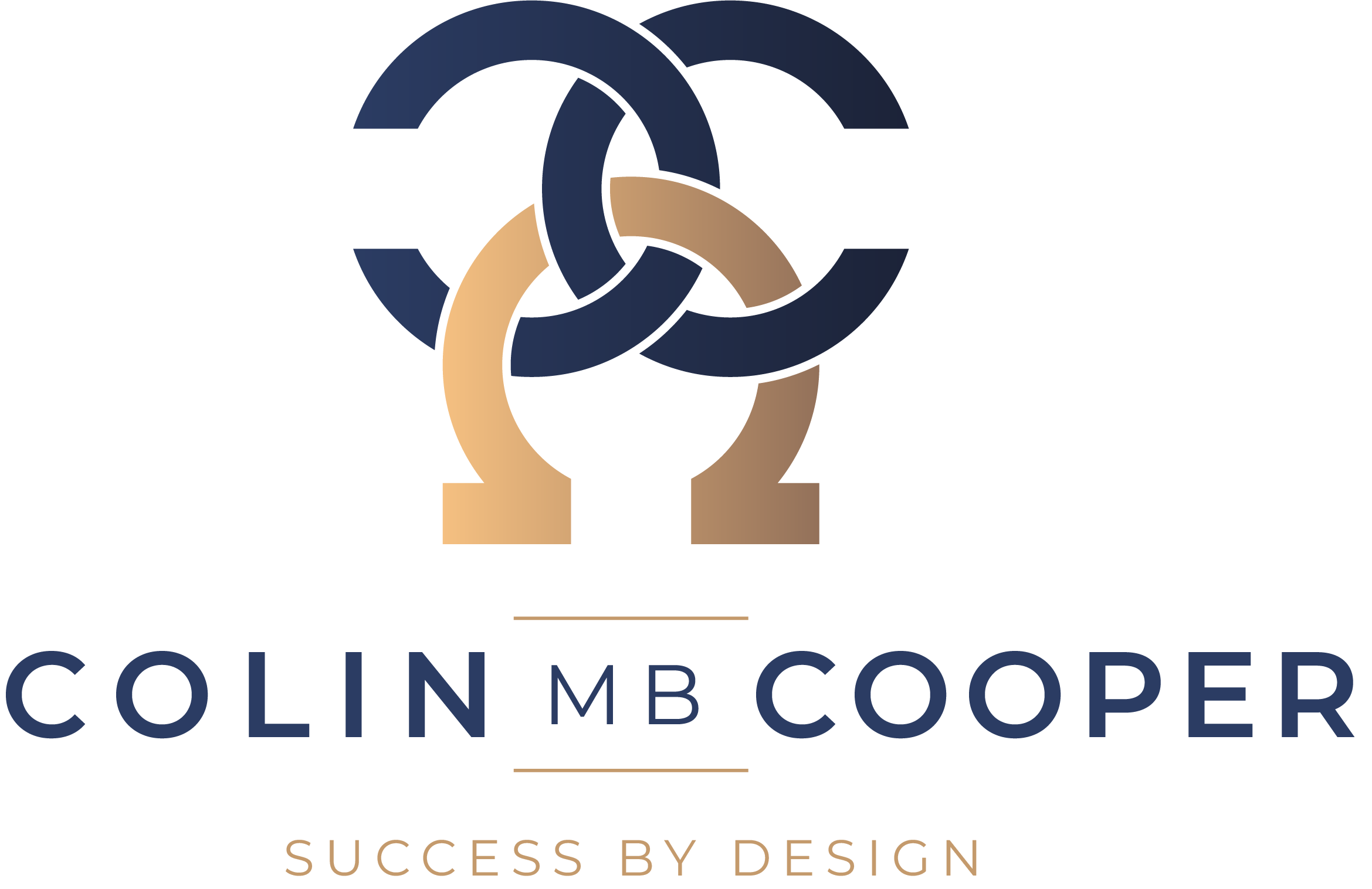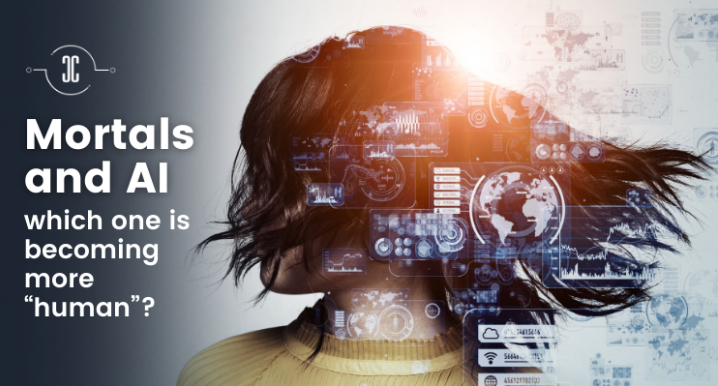Human creativity is responsible for forming the world, and it is the reason for constant change in technology. But is technology helping us to improve as human beings?
Mortals and AI – which one is becoming more “human”?
The world we know today was shaped by human creativity. We see it in tribes’ adaptation of natural objects into tools and in the uniquely human pursuits of art and music.
Modern society’s constant changes in fashion, technology, and food are explained by this creative impulse.
However, technology-wise, artificial intelligence (AI) advances are reshaping modern life by changing transportation, banking, medicine, finance, the military and much more.
But in today’s world, is technology helping us to improve as human beings?
Today I’m presenting a different purpose. I don’t want to teach you something, or to give you any tips for your business. I want to open a discussion and I want you to think with me.
In order to do that, I’ll provide some factual information – something we already have as our reality or that we know for certain is going to happen. In the end, I’ll challenge you to answer my question because I would love to know what your thoughts are!
So, let’s start!

There are many different perspectives on what defines a person in today’s society. In some cultures, it is a person’s capacity for reason that makes them a person. In others, it is their ability to feel pain or develop affinities.
Wikipedia explains a person as a being endowed with certain attributes, such as reason, morality, consciousness or self-consciousness, and belonging to a family, owning land, or having legal responsibilities.”
But the real question is – what’s “that thing” that makes us unique?
It’s not the colour of our eyes, hair, skin or what we own. What humans have been ‘gifted’ with is the capacity to have empathy and understand feelings of love, friendship, respect, etc.
Let’s think about AI for a moment. Neuroscience experts have agreed that AI cannot feel emotions. Synthetic speech, however, can simulate emotions, such as empathy. It is possible for AI to produce a helpful response that feels caring on some level, but is not empathetic as would be experienced by a human…. yet!
The newest generation of artificial voices, like Tacotron 2 from Google, is changing this field by simulating human-like voices with a more realistic tone than many other forms of technology created thus far.
So, now we’re teaching machines what feelings are. We are providing them with data that they can memorize (like universal facial expressions) and fully comprehend how a person feels at that precise moment, which humans sometimes have difficulties recognising and understanding.
Will this kind of information make AI technology intelligent in an emotional sense?

Of course, I bet you’re questioning this!
This is happening because AI has been increasingly helpful in simplifying daily tasks. Machine learning allows apps to predict what people might want at what time which can allow for the automation of many tasks and will avoid people having to guess or take their own initiative.
Ordinary activities like ordering groceries are then done for you by a respective app with just one tap on your phone!
AI can now be used to improve living in dozens of other ways, such as watching movies through Netflix without having to scroll through endless options, listening to music you love on Spotify while driving home, or even handling business through call centres that can convert more sales than if they were managed exclusively by humans.
But talking about AI, I must tell you many people (maybe also you) think it is something new. It isn’t at all!
Look at this for instance: Ancient Greeks told myths about robots, and Chinese and Egyptian engineers built automata, so the idea that inanimate objects can come to life as intelligent beings has been around for a long, long time.
The beginnings of modern AI can be traced to classical philosophers’ attempts to describe human thinking as a symbolic system. But the field of AI wasn’t formally founded until 1956, where the term “artificial intelligence” was conceived.
Then in 1997, when IBM’s Deep Blue became the first computer to beat a chess champion (when it defeated Russian grandmaster Garry Kasparov) AI gained its popularity and now it’s part of our life even without us noticing it!
So, basically, today AI is a way for us to automate things and get ahead in life and business – and now, some experts say that by 2060 AI will be able to beat us at everything.
If you want to go deeper on this, predictions say that AI will master many activities a lot sooner, though. Machines are predicted to be better than us at translating languages by 2024, writing high-school essays by 2026, driving a truck by 2027, working in retail by 2031, writing a bestselling book by 2049 and surgery by 2053.
In fact, it’s predicted all human jobs will be automated within the next 120 years.
And what about us? What are we going to do in life when we have these super-power-emotional-artificial-machines?

Humans need human interaction. In fact, it’s said people who have satisfying relationships are happier and healthier than those without them.
As important as physical health is the feeling that we are heard and understood by another person since studies show that happiness increases life expectancy from seven to ten years.
This comfort we feel when embraced not only provides us with support but also acts like medicine which helps heal wounds caused by heartbreak, or loneliness, and this connection can prove more valuable than the benefit any medication could ever provide.
In other words, when we are physically held by another person, it makes us feel connected to that person, and this is absolutely necessary to our well-being.
But, as you know, we live in a time when technology is rapidly advancing, and things need to be done faster and better. As a result, we created something called “social media”.
And isn’t it one of the best ways to stay in touch with friends and family these days? How many people have you connected with on social media platforms that, just because of it, you can keep in touch with?
Maybe you’ve even met people you could never have met if it wasn’t through these online connections!
But are these real connections? Do you really use Social Media to genuinely connect with people?
Because let me tell you what connection is in the real world: From the moment we are born, human connection is an energy exchange that begins with our mothers and continues throughout life.
It has such power to deepen moments in just a single touch or look into someone’s eyes while listening intently. This can inspire change within us at every stage of development – if nothing else but for those few seconds where you connect with someone authentically, as people on this earth together, sharing something important.
The internet has given us many new ways of communicating which allows us to broaden our horizons by connecting across borders and distance but it’s nearly impossible for the online world to replicate socializing or conversing with another human on a deep level.
In addition to the complexity of communication (verbally and nonverbally), the ease at which we can disengage from others makes these interactions feel superficial.
When was the last time you’ve really connected with someone?

What movies or shows have portrayed romance or friendly relationships between robots? And do we also cry when something bad happens to a robotic character?
Humans have always been fascinated with machines since we first witnessed electricity lighting up our world, so we should not be surprised when we’ve to develop machines that look and feel like us. But could AI affect how we humans interact with one another?
As society has evolved, the inventions of the printing press, the telephone and the internet have increased our ability to store and communicate information – and these innovations that radically changed how we live together may be set to change further as new technologies emerge over time such as virtual reality.
As impactful as these innovations were, they did not change the fundamental aspects of human behaviour that comprise what is called the “social suite” over hundreds of thousands of years. Love, friendship, teaching, and cooperation.
The basic contours of these traits remain remarkably consistent throughout the world, regardless of whether a population is urban or rural, and whether or not it uses modern technology.
But Human-like AI in our everyday lives could change the way we interact; they may change how loving, friendly or kind we are – not just in our direct interactions with the machines in question, but in our interactions with one another.
An experiment in the Human Nature Lab at Yale shows how we behave and react when in contact with human-like AI. They directed small groups of people to work with humanoid robots to lay railroad tracks in a virtual world. Each group consisted of three people and a little blue-and-white robot sitting around a square table, working on tablets.
The robot was programmed to make occasional errors—and to acknowledge them: “Sorry, guys, I made the mistake this round,” it declared perkily. “I know it may be hard to believe, but robots make mistakes too.”
How did it turn out? Using the clumsy confessional robot, various groups demonstrated enhanced performance by improving their emotional states and interactions with each other.
In comparison to control groups, whose robots only made bland statements, the groups with confessional robots were better able to collaborate. In addition, they became more relaxed and conversational, giving comfort to group members who stumbled and they laughed together more often.
However, their experiments didn’t end there! In another case, AI in our social environment also had the opposite effect, showing that it can make us behave less productively and ethically.
In this experimental study, designed to explore how AI might affect the “tragedy of the commons” (the notion that individuals’ self-centred actions may collectively damage their common interest) they gave several thousand subjects money to use over multiple rounds of an online game.
In each round, subjects were told that they could either keep their money or donate some or all of it to their neighbours. If they made a donation, the game would match it, doubling the money their neighbours received.
Early in the game, two-thirds of players acted altruistically. After all, they realized that being generous to their neighbours in one round might prompt their neighbours to be generous to them in the next one, establishing a norm of reciprocity.
From a selfish and short-term point of view, however, the best outcome would be to keep your own money and receive money from your neighbours.
In this experiment, we found that by adding just a few bots (posing as human players) that behaved in a selfish, free-riding way, we could drive the group to behave similarly.
Eventually, the human players ceased cooperating altogether. The bots thus converted a group of generous people into selfish jerks.
So, let’s see the implications of this kind of behaviour: cooperation is a key feature of our species, essential for social life. And trust and generosity are crucial in differentiating successful groups from unsuccessful ones. If everyone pitches in and sacrifices to help the group, everyone should benefit.
When this behaviour breaks down, however, the very notion of a public good disappears; everybody suffers as they find themselves unable to work and grow together – and the fact that AI might meaningfully reduce our ability to cooperate with one another is concerning.
We, humans, experience our emotions through everything we see or feel and we’re still able to love (or hate) anything that has importance to us – but our behaviour can change completely according to the environment we’re in at that specific moment.
A human-like AI will do exactly what we tell them to do, without any real feelings. For good or bad, it’s still just a commanded machine – and what it does depends on the information we give to it.
People, instead, can discern between right and wrong, decide what to do and take our own initiatives – but we are highly corrupted by what is around us.
So, if in the near future, instead of robots merely as human-made objects, we start to treat them as a new class of social actors, would we be able to connect in the right way, continuing to be humans and responsible for our own attitudes?

We’re investing a lot in technology, with something new and advanced coming out every single day – actually, it is already impossible to keep pace with all the innovations around us. Some of these, we’ll probably never hear about; others we already use, not even noticing there’s AI technology embedded in it.
As humans, our main approach with technology is to make our lives easier, automating everything we can. And in doing it, we may become less connected physically and more connected virtually – which changes the emotional connections that exist between one human and another.
I constantly research and develop, and what I see is that we are trying to make artificial intelligence more human. On the other hand, too, I see humans becoming more like artificial intelligence, more like computers, in the way they act and interact with people. Our lives are becoming a bit artificial – and we’re choosing to live this way.
So, now I want to challenge you. My question is:
Are we going to get to a point where humans are more like AI and AI is more human?



